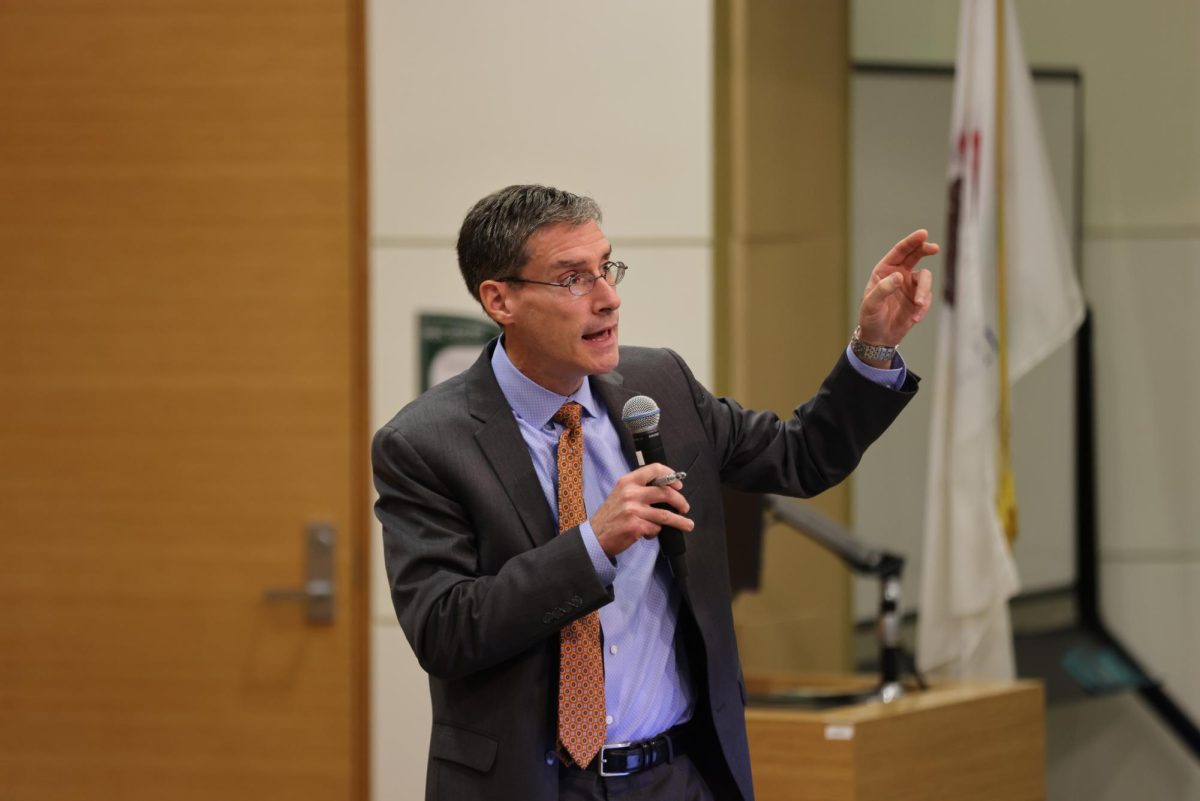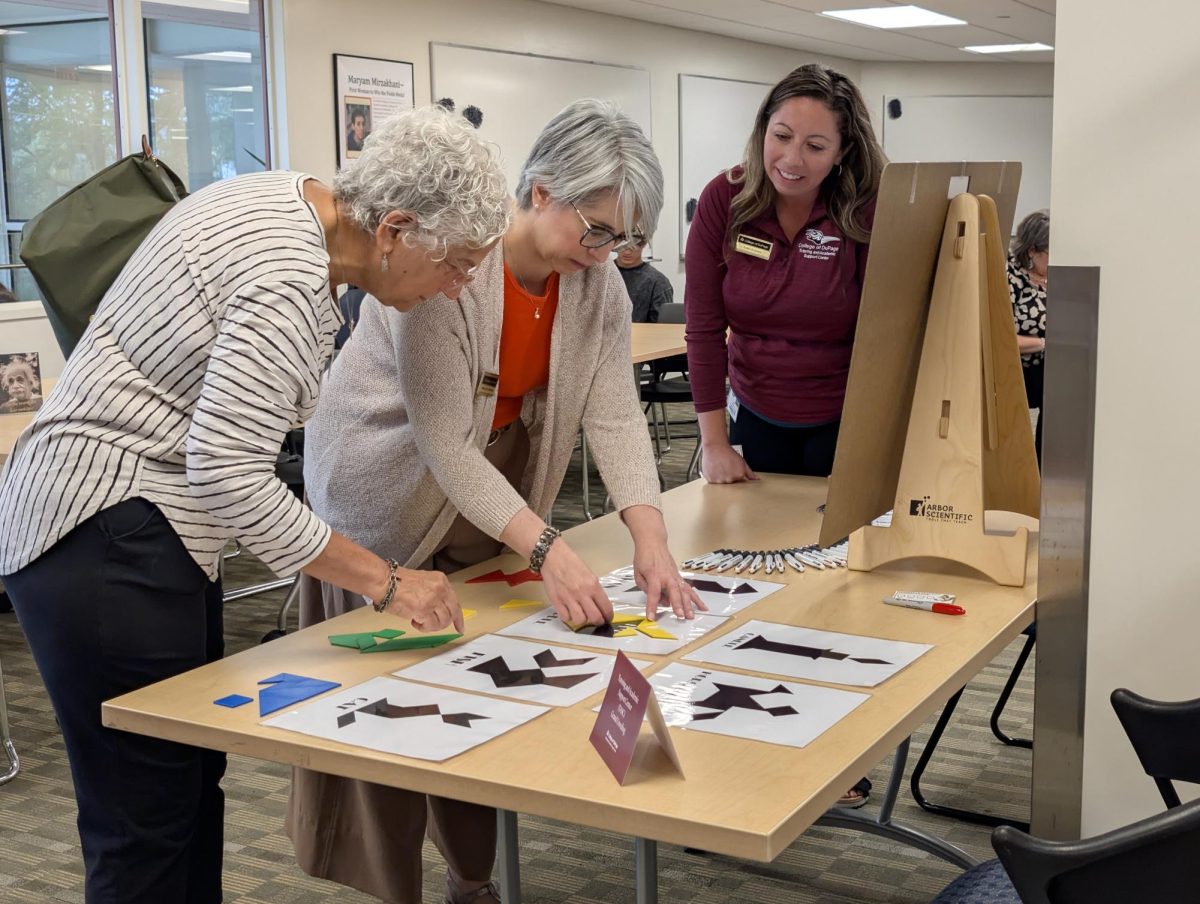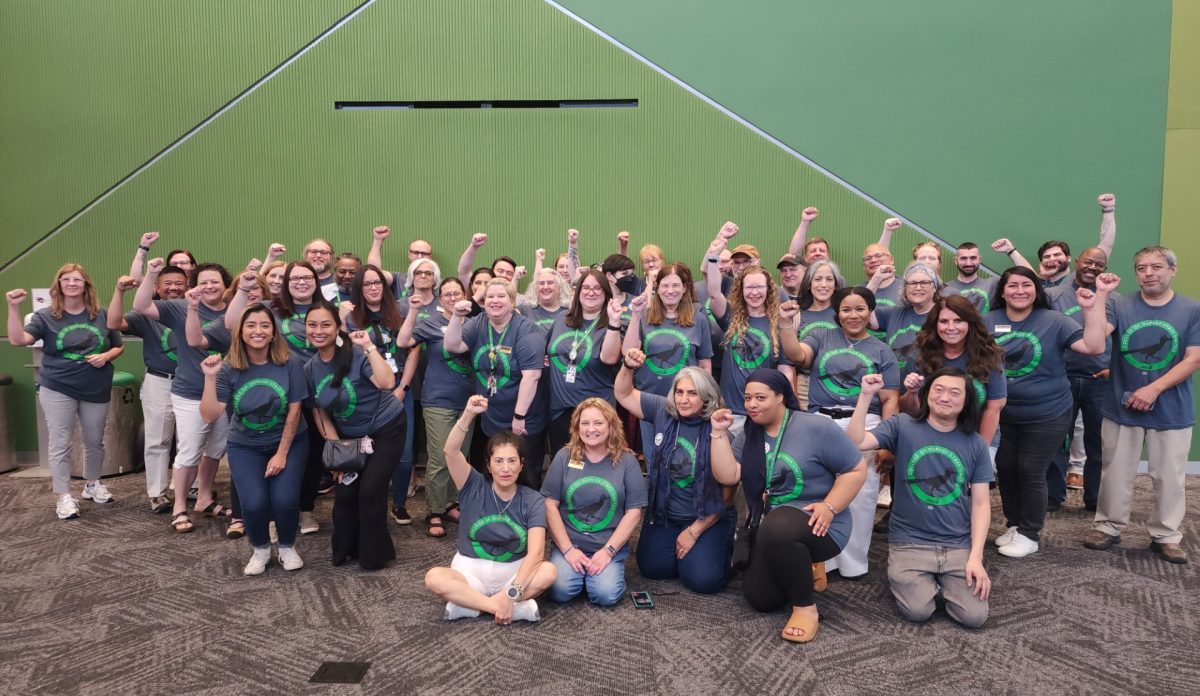Four negotiation sessions between College of DuPage’s Faculty Association (CODFA) and the college’s administration have transpired this month as full-time faculty have continued to work at COD without a contract for more than 115 days.
“We feel like there was some progress and that we could be close,” said David Goldberg, president of CODFA. “At the same time, from our perspective, there’s some foot dragging going on, and we’ve been at this for seven months, and faculty are getting super frustrated.”
After five months of negotiation, a federal mediator was brought into the conversation in aims of helping maintain a productive discussion toward a conclusion. This mediator returned last week after being absent due to COVID-19.
Without the mediator to help establish a compromise between CODFA and administrators, chances of movement towards a final solution for both sides become scarce.
“I think that has been frustrating,” Goldberg said. “The fact that things go on without progress at times has also not been very helpful and is a source of frustration for all the faculty that are involved in this and the people that we represent.”
It’s difficult for Goldberg to put a timeline on when a resolution is expected. When he negotiated for CODFA in 2019, a schedule was set for when meetings would happen between both parties. But during this negotiation period, that schedule has turned more fluid.
“If someone were to be unavailable, we would still meet,” Goldberg said. “That’s not the case with the administration. When someone goes out of town everything gets put on hold. An unwillingness to meet with that kind of regularity is contributing to that frustration.”
CODFA voted on Aug. 24 to authorize a potential faculty strike at COD, and although Goldberg has emphasized the likelihood of a physical strike as low, it still remains at the table.
“We’ve been doing this for seven months,” Goldberg continued. “There are some unhelpful actions that sometimes have been taken by the administration, and those things get in the way and frustrate our colleagues and push us closer to a place that we do not want to be.”
One of the issues CODFA is negotiating with the administration over is “fair and equitable salaries.” Goldberg says this is typically one of the last issues both groups decide upon, but full-time faculty want to catch up with inflation and increased prices for commodities like housing and fuel.
“This is not to say that in general COD faculty have not been compensated fairly in the past,” Goldberg said. “We believe they have, but we also think that as the college stacks money in its reserves to the tune of a quarter billion dollars that it’s also time to be fair to the people that add value.”
Sociology professor Robert Moorehead has been teaching at COD for eight years and is one of the full-time faculty members CODFA is supporting at the negotiation table.
“The teaching part in the classroom with students, I love,” Moorehead said. “That’s what keeps getting me through each day, but students have a lot going on in their lives.”
During negotiations, talks over a new counseling change set to take place at the end of fall 2023 have sparked debate as the administration plans to remove all 18 part-time counselors providing mental health counseling for students. With a quarter of the way through this semester, Moorehead reports from four classes that 48% of his students are failing.
“I’ll open the grade book to see who got their work in, and I just see blank lines,” Moorehead said.
He mostly attributes these performances to what students face outside of school, as the burdens of everyday life can typically cause a decline when someone is trying to be successful in the classroom.
“They got a lot going on in their lives from balancing school and work and their family,” Moorehead said. “We’re coming out of the worst public health crisis in our nation’s history. They have academic deficits from two years of online education.”
Under the proposed counseling change, Moorehead sees a student’s mental health needs being severely overlooked as the number of counselors will drastically decrease.
“What those students need are counseling, and the need is desperate,” Moorehead said. “In every term, you end up with this much smaller group of students at the end of the semester than you had at the beginning.”
“I’m not a counselor. I’ll reach out to them – try to speak to them before class or after class,” Moorehead continued. “Some will come in, follow up and have a meeting with me, but even in that meeting, I can’t fix all the things going on in their lives.”
CODFA and the administration’s next meeting for negotiations is Oct. 10.









